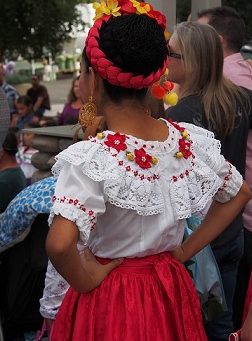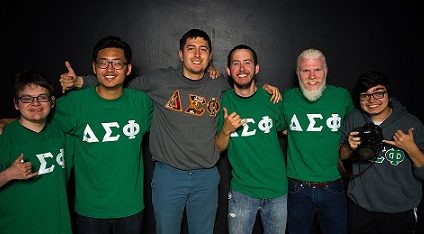I want to examine the key issue of how to establish a balance of diversity and unity. Too much diversity, and society will fragment; too much unity and we have a closed society. How do we find the balance? Is it too much to suggest that it is possible to find it?
.
 Nigel Pocock
Nigel Pocock
.
At the heart of this discussion, there is, I believe, a moral point, but one that itself means different things to different people. This is that all political decisions should work to minimise suffering.
This should be a core value to which all are committed. While diversity is certainly evident, commonality is sometimes forgotten. The need for justice is universal, even if differently understood.
Where there are points of tension, these will arise from differences of culture (e.g., individualism vs. community; secularism vs. theocracy). These differences are reinforced by a sense of ‘otherness’, itself reinforced by unfamiliar differences in appearance and customs.
It should be pointed out that the notion of ‘race’ does not have much currency these days, and is unhelpful shorthand for ‘othering’ and ‘otherness’.
‘Ethnicity’ likewise, has been weighed and found wanting. Many years ago Basil Bernstein suggested the term ‘differentiating rituals’, and while cumbersome, it captures an important component of ‘othering’ – the adhering to customs that strengthen a community, but at what cost? That cost is difference.
We should be quite clear, then, that the task of society is to eliminate suffering. My own research interest is in the social psychology and history of slavery. Slavery arose from greed and exploitation of people for material benefits on the part of the dominant group.
 Yet slavery can and does happen in families and local communities right here in the UK, on our doorsteps, in fact. Stolen passports, abused women. Sex trafficking.
Yet slavery can and does happen in families and local communities right here in the UK, on our doorsteps, in fact. Stolen passports, abused women. Sex trafficking.
It happens especially in poor and uneducated communities, and in communities committed to particular ideas regarding traditional notions of ‘purity’. Utopian ideologies and theologies all too often lead to the end justifying the means.
Honour killings, for example (otherwise defined as ‘murder’) prioritises the suffering of the family and community over/against the suffering of the woman (or man) involved. Western individualism does the reverse.
So we have the polarities of individualism vs. community; theocracy vs. secularism; traditional law vs. the law of the state. What should be done about this tension of pluralism vs. unity? Should differences merely be ‘tolerated’? Or is more at stake? ‘Tolerating’ customs that lead to injustices, does not resolve, but perpetuates them.
Is it possible that both the rights (and responsibilities) of both parties in a clash of traditional customs and western secularism and individualism, can be avoided? Perhaps a new emphasis on the coeval responsibilities of both parties is what is needed?
 This implies the need for education on both sides. Under African-Caribbean slavery, education was seen as highly subversive.
This implies the need for education on both sides. Under African-Caribbean slavery, education was seen as highly subversive.
No great surprise there. It is still seen as subversive within some communities. Should restricting literacy, so that some people, especially women, can be exploited, be allowed?
While there certainly needs to be less ‘me first’ individualism on the part of the dominant culture (for example, as regards marriage), there also needs to be more recognition of the rights of the individual within traditional cultures. Recent publicity has been given to the Newham approach, under its mayor, Sir Robin Wales. This focuses on the dominant language, English, and education, as key, which is surely right.
It is then up to politicians, educationalists and religious leaders as to how to best implement this. The alternative Tower Hamlets’ approach, to teach minorities in their own languages, can only encourage perpetuation of ‘otherness’, and ghettoisation and reduced opportunity.
 But this education should be directed not just at minorities, but also at the dominant secular individualism. The ‘me first culture’ also needs educating, being reified, made into an idol. But adjusting a culture based on consumerism, might be even more complex.
But this education should be directed not just at minorities, but also at the dominant secular individualism. The ‘me first culture’ also needs educating, being reified, made into an idol. But adjusting a culture based on consumerism, might be even more complex.
Using a revolution as a means to this end, would doubtless lead to unplanned outcomes that involve even more suffering. Society, however, is never static, and develops, even if traditional societies, and utopian ones, find this hard to bear.
Change will come, whether people like it or not. But will it be a pluralism that is creative, and have a core that provides unity? What we do not need is a tolerance that ignores injustices, but a culture of openness. Customs that allow tyrants to exploit women, daughters and the uneducated immigrant to suffer, under the guise of a local or even family practice, have no place here, for ‘absolute power corrupts absolutely’.
(Photos: Pixabay)












.jpg)












